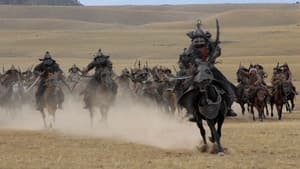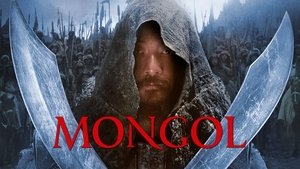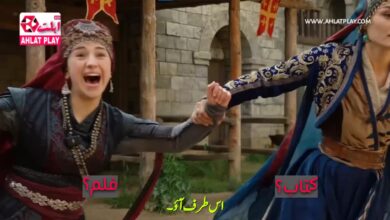Mongol 2007 Full Movie Urdu Subtitles

Mongol (2007) Full Movie Urdu Subtitles: A Window into the Rise of Genghis Khan
If you are a fan of epic historical films and are curious about the roots of one of history’s most powerful leaders, then Mongol (2007) is a must-watch. For Urdu-speaking audiences, the Mongol 2007 full movie with Urdu subtitles opens a powerful gateway to understanding the incredible life of Genghis Khan, born as Temujin, who transformed from an outcast to the founder of the largest empire the world has ever seen.
1. History
The movie doesn’t just tell a story—it invites viewers into the harsh Mongolian steppe, where survival was the first lesson of life. Set in the late 12th century, it faithfully depicts the early years of Temujin, before he became Genghis Khan, the feared and respected conqueror.
2. Biography
Temujin was born in 1162, near the Onon River in present-day Mongolia. His father, Yesugei, was a tribal chief of the Khamag Mongol Confederation. However, after his father was poisoned by rival tribes, Temujin’s life spiraled into uncertainty. His family was cast out, left to fend for themselves in the unforgiving wilderness. This adversity shaped the young boy into a determined warrior and thinker.
3. Struggle
In Mongol (2007), directed by Sergei Bodrov, the viewer is given an intimate portrait of Temujin’s struggles with betrayal, captivity, and personal loss. It’s more than a tale of war—it’s a story about enduring pain, loyalty, and the unshakable will to rise above one’s circumstances.

4. Leadership
What’s truly remarkable about Temujin, and what the film powerfully captures, is his ability to unite rival tribes. Through a mix of fearless combat and just governance, he gained the respect and loyalty of thousands. This unity was unprecedented in Mongolia’s fragmented landscape.
5. Courage
Temujin displayed tremendous courage, not just in battles, but in his philosophy of equality and meritocracy. Unlike other tribal leaders who gave positions of power to relatives, Temujin promoted people based on skill and loyalty—creating a more cohesive and efficient fighting force.

6. Justice
One of the unique aspects of his rule, as emphasized subtly in the film, is his sense of law and justice. He introduced the Yassa, a code of laws that emphasized discipline, loyalty, and fairness—rules that even he himself had to follow.
7. Power
From a small band of followers, Temujin eventually amassed an army that would conquer lands stretching from China to Eastern Europe. His strategic genius lay in understanding not just war, but politics, trade, and diplomacy.
8. Empire
By the time of his death in 1227, Genghis Khan had laid the foundation for an empire that would grow even larger under his successors. The Mongol Empire would eventually become the largest contiguous empire in world history.

9. Language
Thanks to the Urdu subtitles available in the Mongol (2007) version, South Asian audiences can deeply engage with the film’s emotional undertones and philosophical depth. It’s not just about understanding dialogue, but feeling the passion, pain, and drive of every character.
10. Love
The film also tenderly portrays Temujin’s lifelong relationship with his wife, Börte, whose kidnapping early in the story becomes a key motivation in Temujin’s early battles. Their bond adds emotional depth to the story, reminding viewers that love often fuels greatness.
11. Betrayal
One of the central themes in the movie is betrayal—by allies, childhood friends, and even fate. Temujin’s one-time blood brother, Jamukha, eventually becomes his most bitter rival. Their relationship, full of political and emotional complexity, forms a powerful core of the narrative.
12. Tradition
The film brings to life ancient Mongolian customs, food, rituals, and belief systems. From sacred mountains to clan meetings, every scene immerses the viewer in the tradition-rich environment that shaped Genghis Khan’s identity.
13. Battle
Epic battle scenes, orchestrated with meticulous realism, capture the intensity of Mongol warfare. With limited resources but unmatched strategy, Temujin overcomes stronger enemies. Mongol (2007) does a fantastic job of making every battle not just a spectacle, but a turning point in his life.
14. Philosophy
Temujin’s personal philosophy, influenced by his early hardships, was rooted in strength, loyalty, and justice. He was not a mindless conqueror; he believed in the duty of a ruler to serve the people. This complexity makes him a compelling historical figure—and not just a warlord.
15. Religion
Unlike many empires of the time, the Mongol Empire under Genghis Khan allowed religious freedom. The film hints at his respect for different beliefs, showcasing his pragmatism and foresight as a ruler of diverse lands.
16. Legacy
Genghis Khan’s legacy is felt even today. His descendants ruled vast empires for generations. Cities, trade routes like the Silk Road, and even modern political borders have roots in his military campaigns and administrative systems.
17. Survival
At its heart, the story of Temujin is a tale of survival—against nature, enemies, and even close friends. Mongol (2007) captures this resilience beautifully, showing us how one man’s survival instincts reshaped global history.
18. Loyalty
Temujin’s rise was possible because of the deep loyalty he inspired. His generals and soldiers followed him not out of fear, but admiration. This loyalty was built on mutual respect, and the film brings this bond to life through intense personal interactions.
19. Culture
The Mongolian culture, often overlooked in mainstream cinema, shines in this movie. From clothing and horses to songs and warfare, every detail is crafted with authenticity. Urdu subtitles make this rich cultural heritage more accessible to a broader audience.
20. Inspiration
Watching Mongol (2007) is not just an entertaining experience; it’s an inspirational journey. Temujin’s transformation into Genghis Khan teaches that greatness comes not from birthright, but from willpower, vision, and courage.
Final Thoughts
The Mongol 2007 full movie with Urdu subtitles is more than a historical drama—it’s a powerful retelling of one of the most remarkable biographies in human history. Through its rich visuals, emotional depth, and accurate historical context, it connects Urdu-speaking viewers to the fascinating life of a boy named Temujin, who rose to become Genghis Khan, a name that still echoes through the pages of time.



